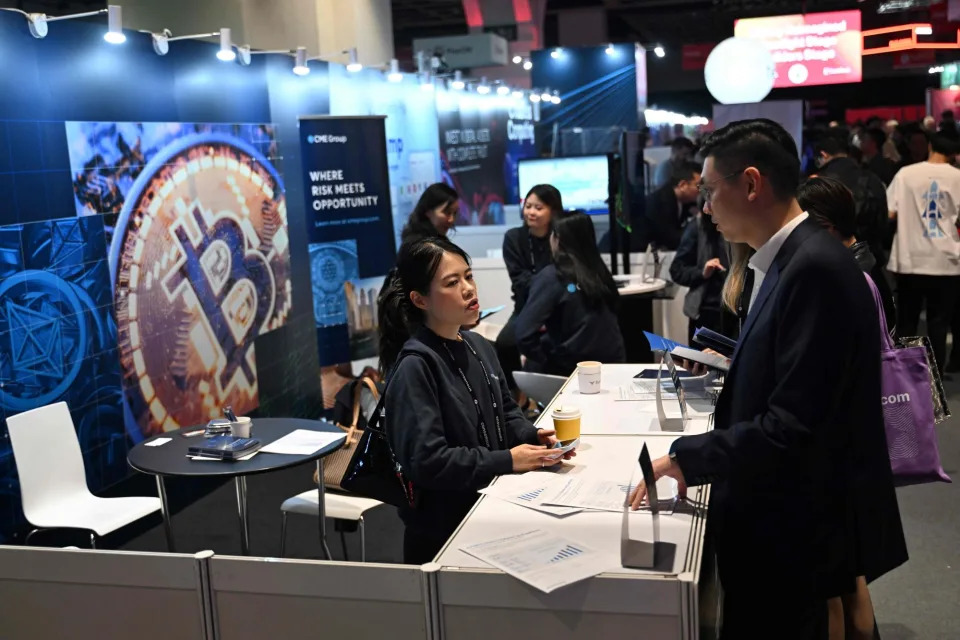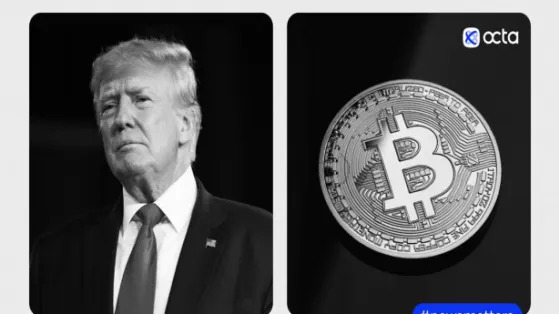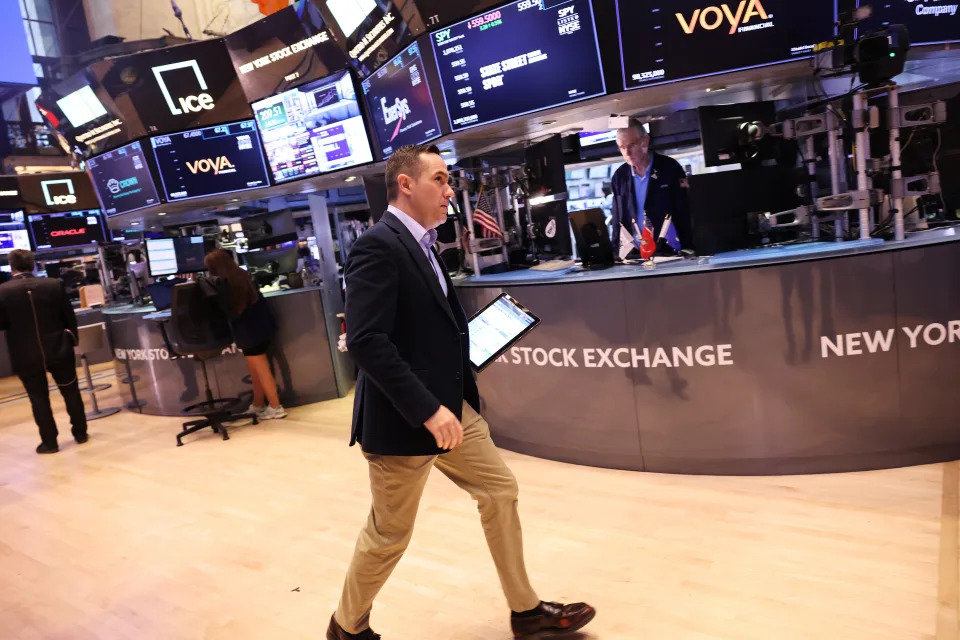Hong Kong is gearing up to compete for "global liquidity" in the virtual asset industry, the city's regulators said on Wednesday at Consensus, one of the world's biggest cryptocurrency conferences, as the Asian financial centre sees some success attracting international business.
"We have to think how are we going to provide a regulatory framework for growth which allows for responsible innovation ... and tapping into global liquidity," SFC Chief Executive Julia Leung said during a panel discussion.
The SFC on Tuesday granted a virtual asset trading platform licence to New York-based Bullish, the first international cryptocurrency exchange to get the licence in Hong Kong. The licence came on the first day of Consensus Hong Kong, which is organised by Bullish subsidiary CoinDesk.
The main conference kicked off on Wednesday, when crypto industry heavyweights including Binance CEO Richard Teng and Tron founder Justin Sun spoke at the event at the Wan Chai Exhibition Centre. Consensus Hong Kong is the first major expansion of one of the leading crypto conferences since Bullish acquired the crypto news organisation CoinDesk in 2023.

Visitors on the floor of Consensus Hong Kong, which kicked off its main events on Wednesday. Photo: AFP alt=Visitors on the floor of Consensus Hong Kong, which kicked off its main events on Wednesday. Photo: AFP>
Coinciding with Consensus, the SFC unveiled a new road map with twelve initiatives designed to "future-proof" Hong Kong's virtual asset ecosystem. Under the framework, Hong Kong aims to expand product offerings, act as a bridge to traditional finance and "attract global platforms, order flows and liquidity providers".
The regulator noted that the city's virtual asset market currently "remains restrictive in scope", impacting investor choice.
Eric Yip Chee-hang, the SFC's head of intermediaries, said during another panel discussion that Hong Kong's crypto regulatory regime has so far been "very much focused on licensing", but that the new road map will be "centred around the concept of liquidity".
"I think we can still focus on licensing, but I think it's more important to think about how to make our trading platforms work," Yip said. "I think the one word that we need to think about always is liquidity. How do you bring liquidity to this market, hence commercial value, hence ecosystem."
The SFC's Leung also teased that the regulator is considering allowing virtual asset derivative products for professional investors, or those with portfolios of at least HK$8 million (US$1 million), and to allow margin lending to "certain customers".
"Regulators are becoming more open-minded in assessing how their policies can better support businesses. The environment is improving," said Melvin Deng, CEO of QCP, a Singapore-based digital asset trading firm.
With an asset management team already in Hong Kong, QCP is closely monitoring developments in the city's digital asset derivatives regulations and may consider establishing a local trading operation once the regulatory landscape becomes clearer, he said.
The road map also states that the SFC will consider allowing services for staking, through which investors lock up tokens on a blockchain network for the purpose of validating transactions and earn passive yields. Most major blockchains use the staking mechanism, which allows for faster transactions than mining, the mechanism used by the bitcoin blockchain.
As more players enter the blockchain space amid a friendlier regulatory environment, especially in the US, staking activity could grow significantly this year.
"I think institutional staking is going to be a huge topic for 2025," said Amor Sexton, chief operating officer of Blockdeaemon, a blockchain infrastructure company. "When [institutions] start moving into crypto custody, the next question will be, well, now that we have the crypto on our platform, what other value-added services can we offer to clients, and staking is an obvious one."
Hong Kong's initiatives to become a crypto hub have recently faced stronger headwinds as attention has shifted to the US under the new administration of President Donald Trump , who ran on a crypto-friendly platform and has been making moves seen as positive for the industry .
Leung said that Hong Kong will be able to compete through "consistent" regulations, while the US "suffers from fragmentation in oversight".
This article originally appeared in the South China Morning Post (SCMP) , the most authoritative voice reporting on China and Asia for more than a century. For more SCMP stories, please explore the SCMP app or visit the SCMP's Facebook and Twitter pages. Copyright © 2025 South China Morning Post Publishers Ltd. All rights reserved.
Copyright (c) 2025. South China Morning Post Publishers Ltd. All rights reserved.





